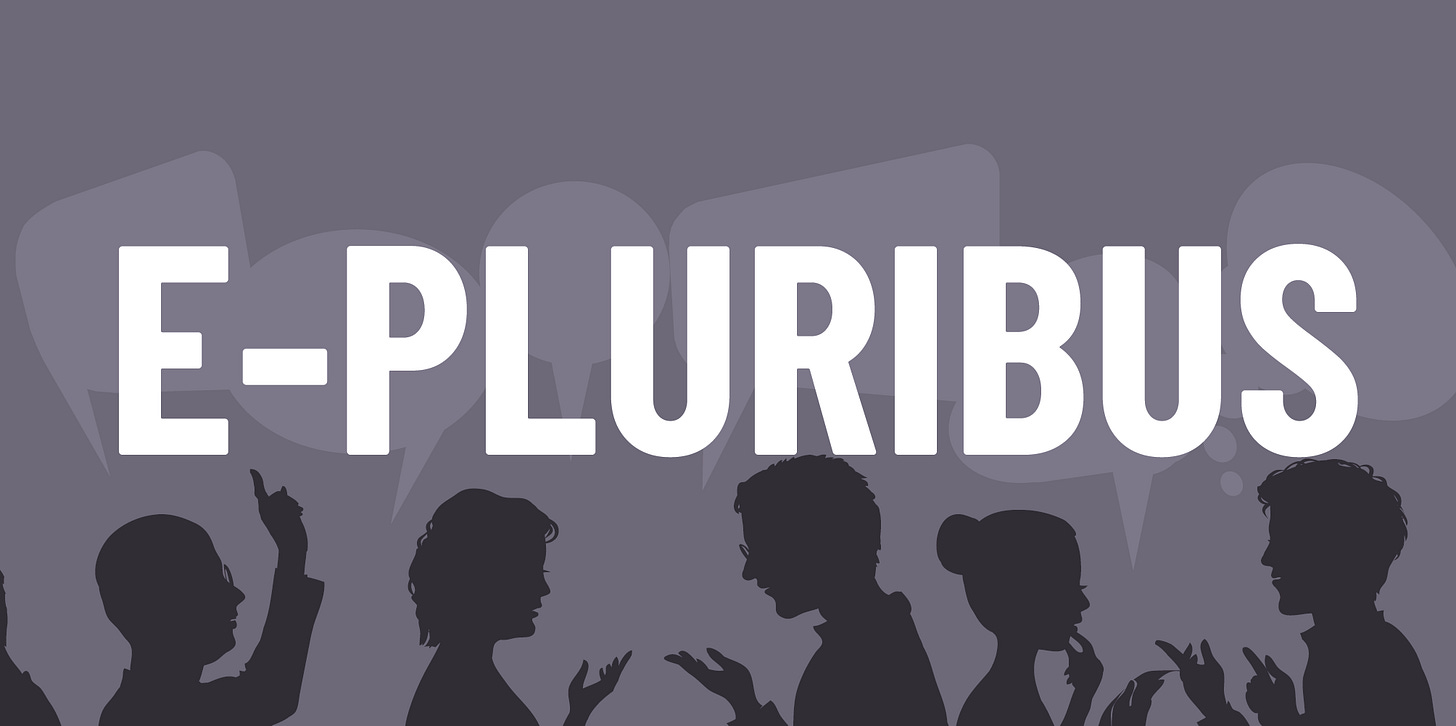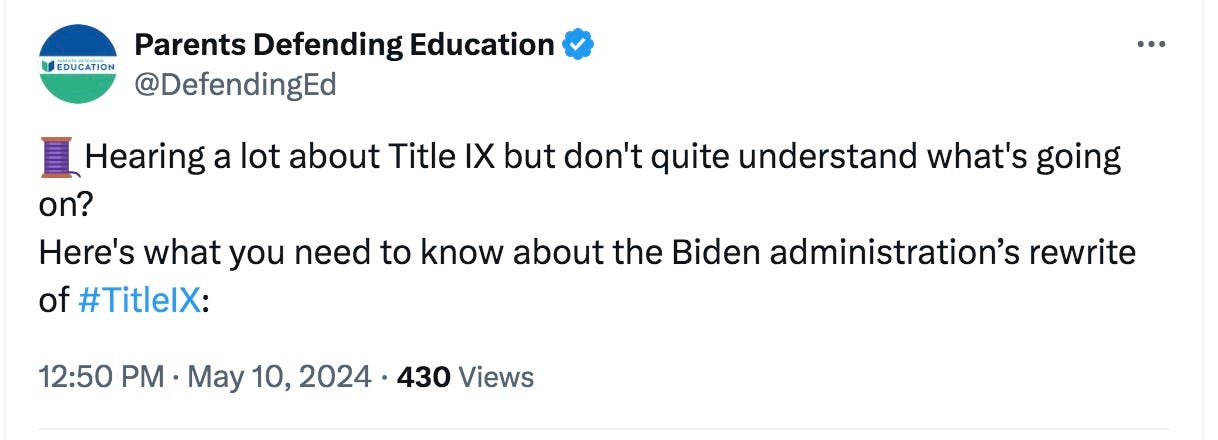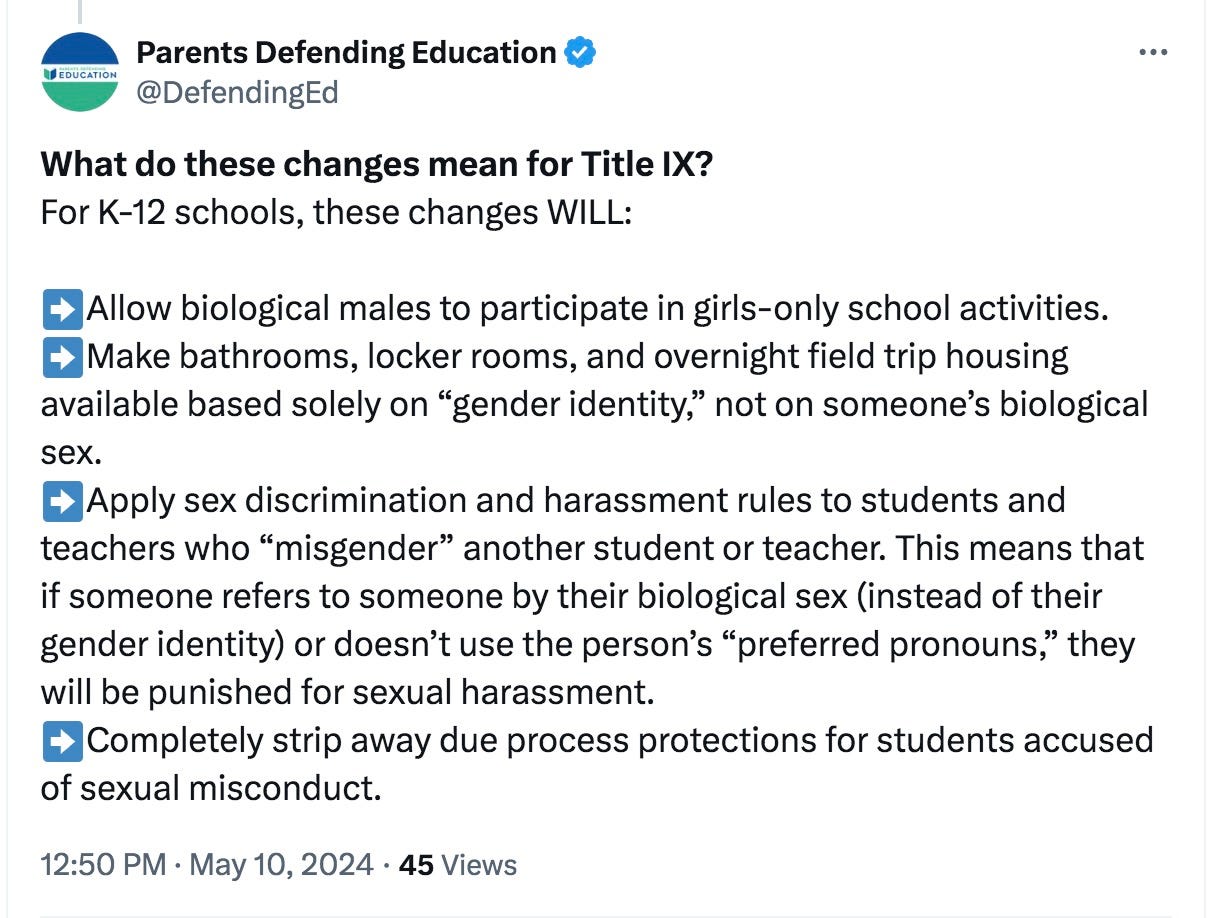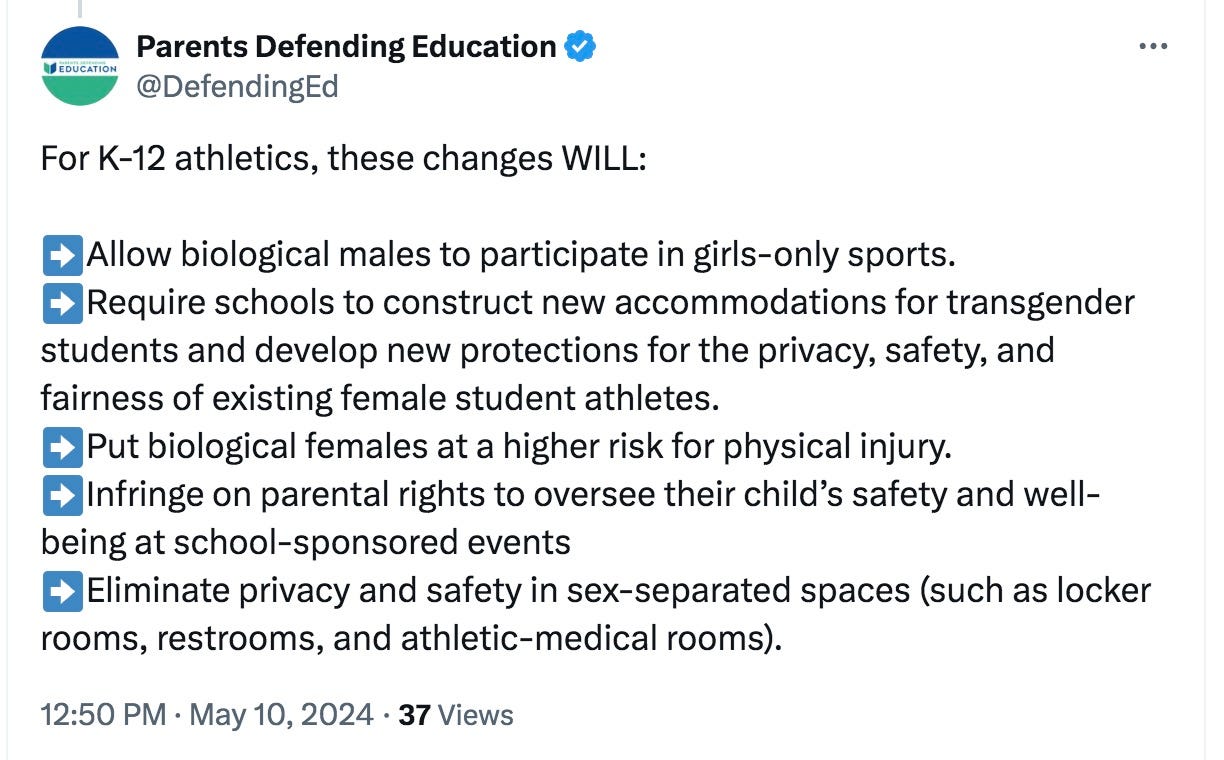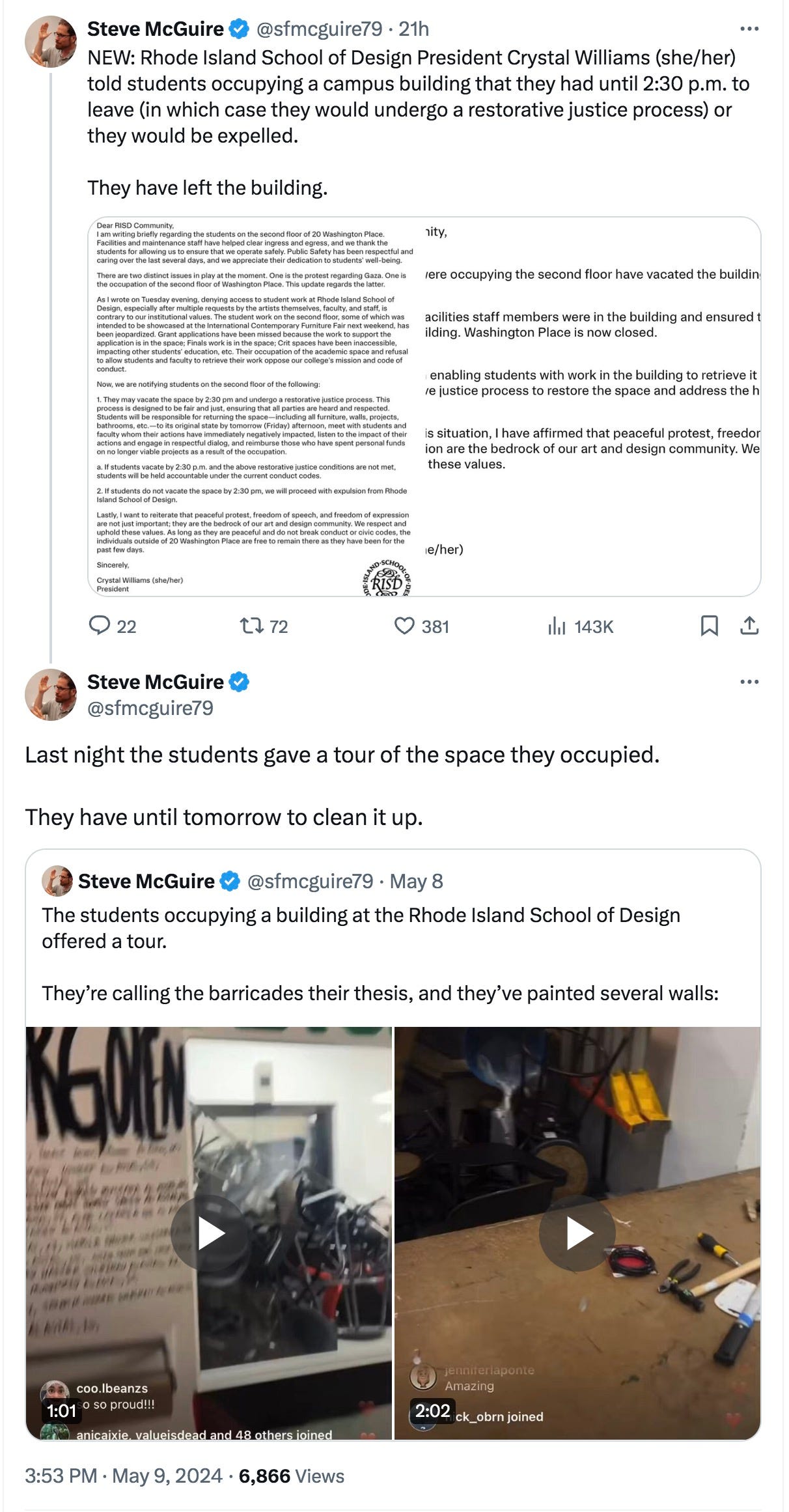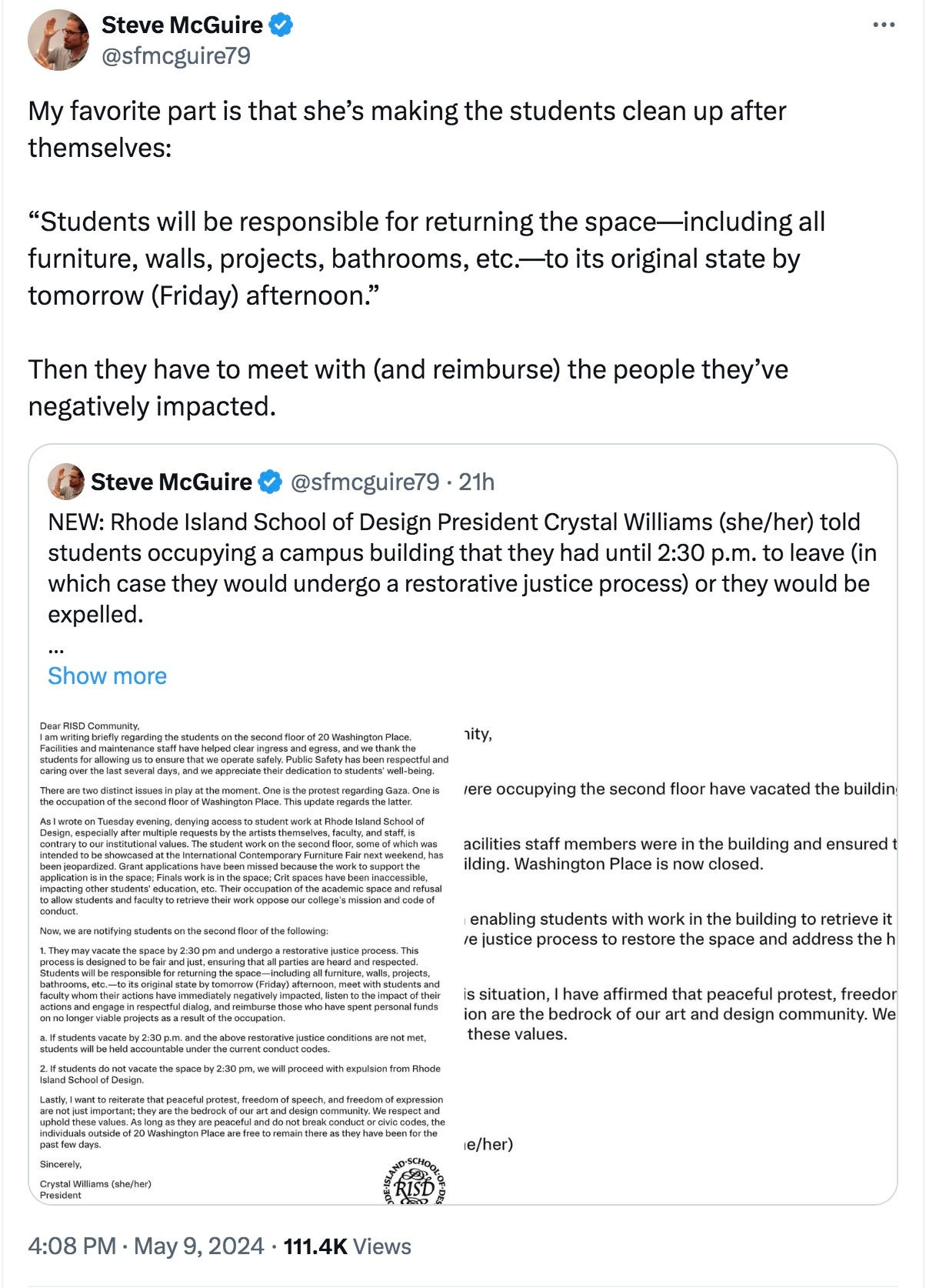E-Pluribus | May 10, 2024
The fight for right is never over; God makes a comeback; and reports of the death of corporate DEI have been greatly exaggerated.
A round-up of the latest and best musings on the rise of illiberalism in the public discourse:
Eitan Fischberger: Confront Anti-Westernism
Sometimes addressing dangerous ideas can give them more attention than they deserve. But Eitan Fischberger argues at City Journal that anti-Westernism and anti-Semitism are surely worth pushing back against. As Ronald Reagan said, freedom is never more than one generation away from extinction, and similarly, old, discredited ideologies are no more than one generation away from revival.
Combating anti-Semitism is not a universal priority among Americans. Many are understandably more concerned about the southern border, elevated crime rates, or the continued degradation of civic culture. For many Americans, hatred against a tiny minority found mainly in cities is remote from their everyday lives. But guarding against attacks on Jews is inextricable from the values that Americans seek to preserve. Anti-Semitism is the first step down the slippery slope toward social decay.
[. . .]
To reverse the disturbing trends we’re seeing, concerned Americans need to push back jointly against anti-Westernism and anti-Semitism. This requires a two-pronged approach: defensive measures to counter anti-Western influences; and offensive efforts to reconnect younger Americans with the richness of Western civilization.
The first step is to prevent radical ideologies from further corrupting American academic institutions and social media. The fight against the diversity, equity, and inclusion (DEI) movement, which scorns Western principles like individual liberty and responsibility, is crucial. DEI’s anti-Western underpinnings invariably lead to anti-Semitism; as Heather Mac Donald has written, “Elite schools once disdained Jews because they were seen as outsiders to Western civilization. Now they are reviled as that civilization’s very embodiment.”
Next is to reengage the younger generation with the grandeur of the Western heritage: art, literature, scientific inquiry, and philosophy. This is no small task. It requires a nuanced approach that resonates with youthful aspirations, one that uses pro-Western education and culture to shift the narrative from merely rejecting anti-Westernism to embracing proactively our civilization’s principles. Inculcate a love of the West, and anti-Semitism will plummet.
Read it all here.
Megan Gafford: The Religious Instinct in a Godless World
Man has been trying to do away with God for millennia in one way or another. As knowledge and technology have continued to advance, the voices that insist God has outlived his usefulness have grown louder. But there are at least rumblings of disagreement surfacing recently, and some of those are from unexpected quarters. Here’s Megan Gafford at Quillette.
There is nothing wrong with constructing our own human meaning, without invoking a god. But the risks involved are captured by a pithy insight attributed to G.K. Chesterton: “When men stop believing in God they don't believe in nothing; they believe in anything.” As people have argued since at least 1790, when Edmund Burke published his Reflections on the Revolution in France, sapping society of traditional religious belief can prepare the way for new ideologies controlled by murderous totalitarians like Robespierre—and later, Stalin and Mao.
[. . .]
[Author Lisa] Marchiano cautions that worshipping the wrong thing can have dire consequences. She quotes David Foster Wallace:
“The compelling reason for maybe choosing some sort of god or spiritual-type thing to worship—be it JC or Allah, be it YHWH or the Wiccan Mother Goddess, or the Four Noble Truths, or some inviolable set of ethical principles—is that pretty much anything else you worship will eat you alive.
“Traditional religions do have features that make them less likely to become devouring. They draw on ancient traditions that are often philosophically rich, and they are knitted into the social structure of our society.”
Famous atheist Ayaan Hirsi Ali heeded this warning when she declared in November 2023 that she is now a Christian—an apostate from apostasy. The first reason she gave for converting to Christianity is her new-found conviction that liberal democratic civilisation depends on the legacy of the Judeo-Christian tradition[.]
[. . .]
And the second reason Hirsi Ali gave is that she ultimately found life without any spiritual solace unendurable:
Atheism failed to answer a simple question: What is the meaning and purpose of life?
Russell and other activist atheists believed that with the rejection of God, we would enter an age of reason and intelligent humanism. But the “God hole”—the void left by the retreat of the church—has merely been filled by a jumble of irrational, quasi-religious dogma.
Hirsi Ali concludes that “the erosion of our civilization will continue” without “the power of a unifying story.” And in this regard, she pronounces that, “Christianity has it all.” Notably absent from her road to Damascus moment is any profession of belief in the divinity of Jesus Christ—her religious urge is bound up with her distress at the dire consequences of worshipping the wrong thing.
Read it all.
Taylor Nicole Rogers: Is the corporate DEI panic finally over?
Although Taylor Nicole Rogers at the Financial Times writes favorably about the present state (and future) of private sector companies instituting DEI principles and policies, those who oppose DEI should take her findings as a warning that despite apparent wins, corporate DEI marches on.
Since the Supreme Court overturned the use of affirmative action in college admissions last summer, it seems like corporate America has been consumed by panic over diversity and inclusion.
But last month, a diversity executive told me that it had not affected her work at all. I have to confess that I wondered if she was delusional. Had she not heard that conservative activists were threatening legal action against dozens of large companies running programmes for specific ethnic groups? Was she unaware that her colleagues in Silicon Valley were laid off by the dozen last year?
The executive, from a southern energy company, knew about it all. Yet the word she used to describe her office was “quiet.” Her mentorship programmes and cultural celebrations went on like any other year. That is the case in most human resources and diversity departments, save for a small group of high-profile companies, she insisted.
She is not the only one. While conservative lawmakers and billionaires try to undo the inclusion programmes that US corporations rolled out after George Floyd’s murder in 2020, nearly every one of the dozen executives I have interviewed recently tell me they are not altering their diversity plans.
The research group The Conference Board surveyed far more chief human resources officers than I did and found the same thing. Of the 194 executives they polled late last year, none said they planned to scale back their diversity initiatives in 2024. The likes of Bill Ackman and Elon Musk may say that such programmes discriminate against white people and men, but few executives seem to be listening.
That is not to say that the diversity discipline will escape from the current backlash unscathed. Several large Silicon Valley corporations slashed their diversity budgets last year amid recession fears, while lawsuits from conservative activists prompted Pfizer, Comcast, Goldman Sachs and Bank of America to expand programmes that were once reserved for specific racial minorities to people of all races.
Yet companies’ own demographic data shows that they are continuing to diversify their workforces even as they promote their modified programmes, according to Ken Janssens, cofounder of Windō, a platform that aggregates social responsibility data from hundreds of companies.
Read the whole thing.
Around Twitter (X)
From Parents Defending Education, here’s a breakdown of what the Biden administration’s new interpretations of Title IX will mean. The excerpts are from a longer thread.
From Steve McGuire, the Rhode Island School of Design is taking the road less traveled in dealing with student protesters:
Via Wesley Yang, a new euphemism drops for female doctors:



